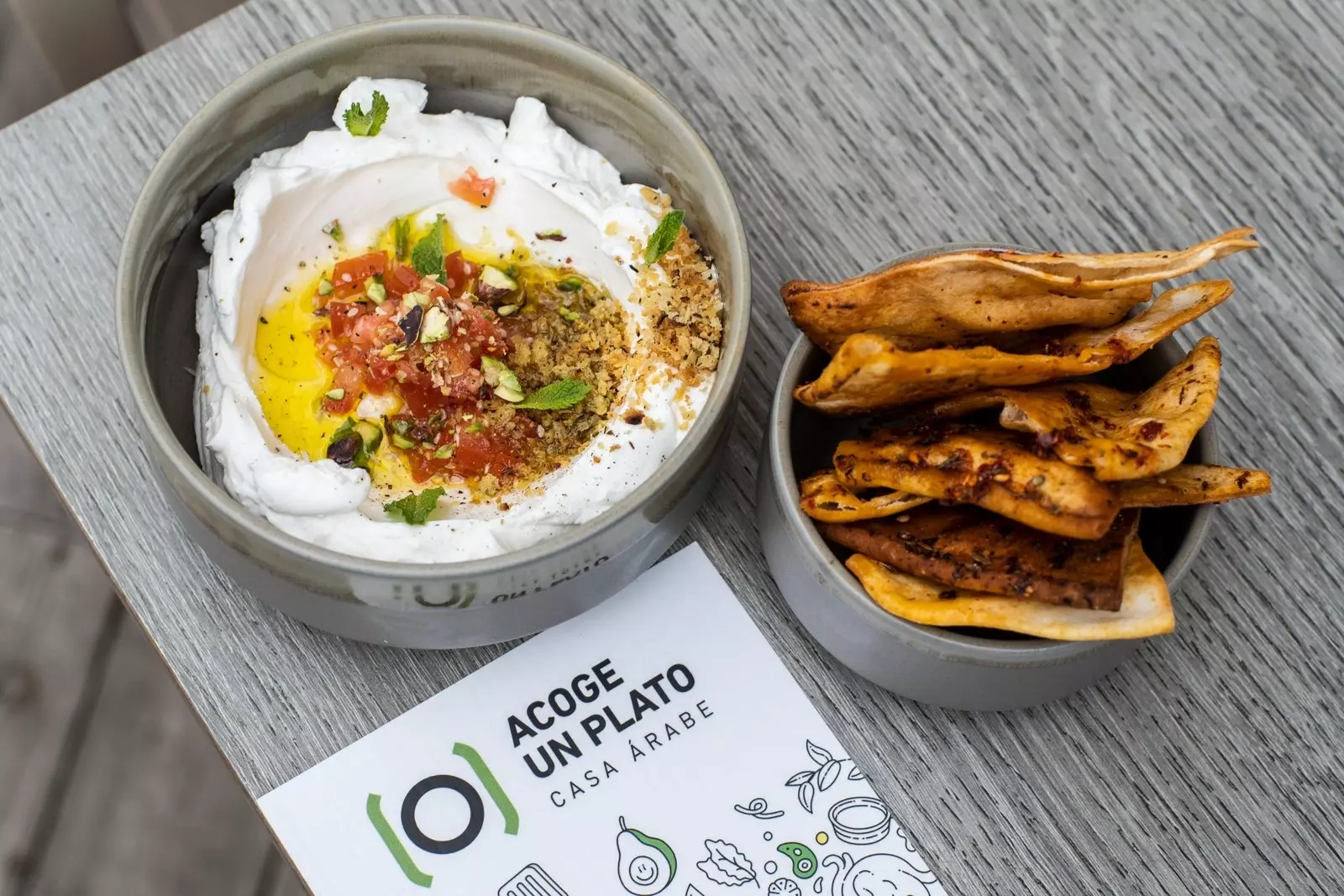
The labneh from Lebanon, one of the recipes that can be tried at Host a Plate Casa Árabe
“In Afghanistan, my mother made kofta and I loved it. When she was little, she would always tell her that I would like to open a kofta shop and my mother would laugh and she would tell me: 'Daughter, in Afghanistan women cannot work, they cannot leave the house. What dream do you have?’ And in the end my dream has come true.”
Sharifer Ayubi started cooking when she was seven years old, when she helped her grandmother and her mother to make bread. She arrived in Spain as a refugee 11 years ago and today she is She is one of the dozens of people who have passed through the kitchens of Acoge un Plato Catering, the project that the Spanish Commission for Refugee Aid (CEAR) began in 2015 in the Temporary Reception Center that it has in Getafe with the aim of promote the inclusion of refugees through gastronomy.
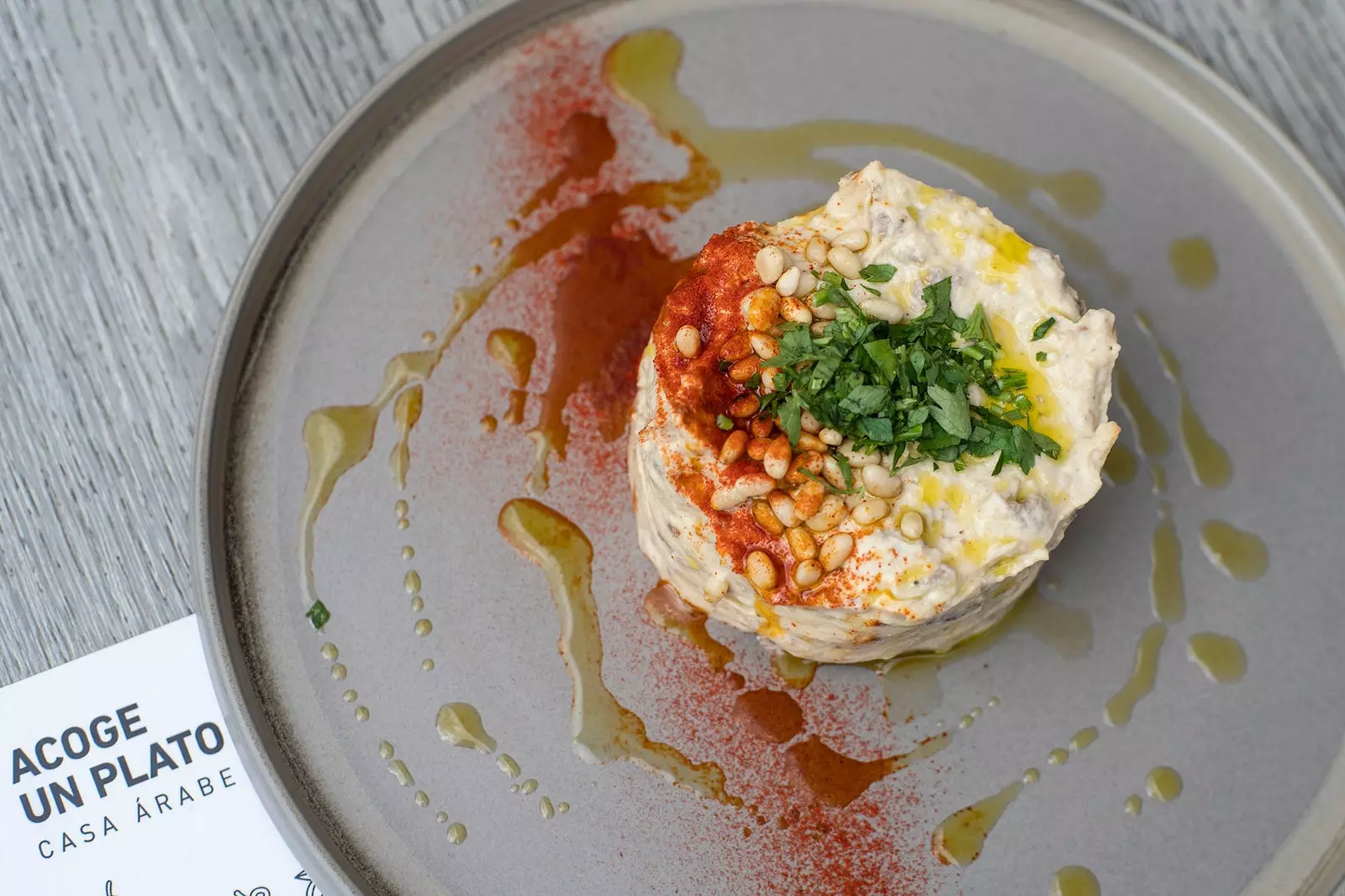
After this you will no longer call any cream of chickpeas hummus
They were able to see that food, sitting around a table, unites us, connects stories, brings cultures closer and helps the roots, although distant in space and time, not fade. Now, take another step towards the social and labor inclusion of migrants and refugees by converting the catering into the restaurant on the terrace of Casa Árabe It will be open until next October.
"Casa Árabe had been contracting our catering on a regular basis and always with a very positive feedback and they told us that they would love us to manage their terrace. It made us very dizzy, but really after evaluating it we believed that we could not miss an opportunity like this because the site is magical, it is special and it is the ideal context where we can develop our project and feel good”, explains to Traveler.es Estrella Galán, general director of CEAR.
Thus, a group of refugee cooks and cooks, advised by the chef Martin Coronado, launched into the selection of Arabic cuisine recipes to shape the menu that can be tasted in Host a Casa Árabe dish.
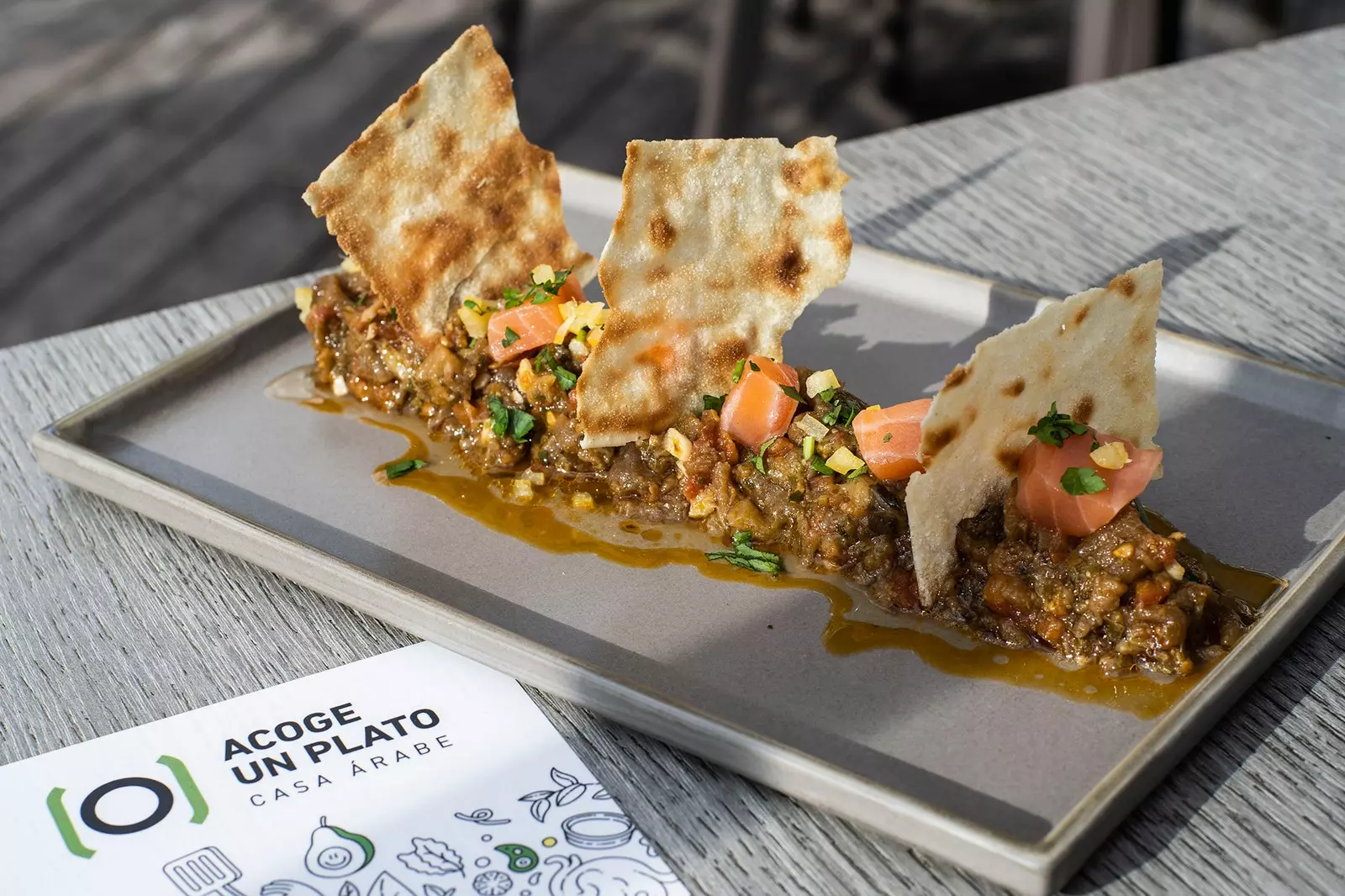
Authentic recipes that these refugees brought with them when they left their home countries
From the labneh of lebanon until the zaalouk from Morocco, going through the harra sweet potato from Libya, the jordanian Beef Kofta, the Shawarma Mushakan From Palestine, the Tunisian sardines and the ubiquitous hummus bi Lahme and lamb tagine, Without forget Basbousa cake, an Egyptian dessert.
All of them have something in common that differentiates them from other gastronomic proposals: be made with the authentic recipes that these refugees brought with them when they left their countries of origin. After this, you will no longer call just any cream of chickpeas hummus.
will be nine of the migrants and refugees that are part of Acoge un Plato Catering who are in charge of the proper functioning of the terrace of Casa Árabe, providing them, through the kitchen, a means to integrate socially and professionally in Spain.
“We were born with the vocation to go very slowly. However, circumstances have led us to speed up the pace more than we would like, but in a positive way. What it has caused is a greater number of hiring, training of migrant refugees and possibilities of inclusion which is the final object of Welcome a Plate (...) The people who have worked with us have taken a process of brutal professional and personal growth and that is the greatest satisfaction that a project like this can have”, sums up Galán.
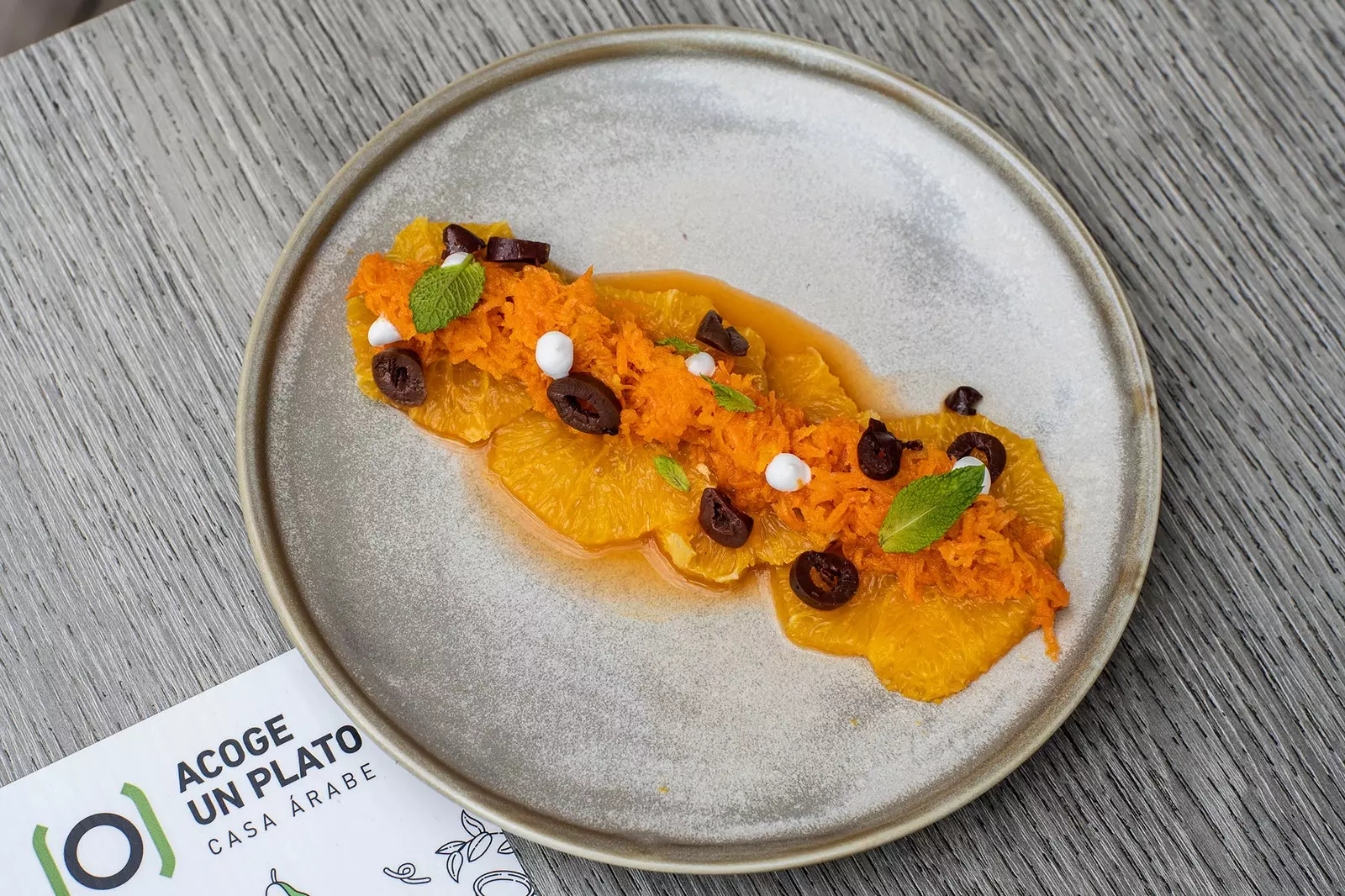
Carrot salad, with orange, orange blossom and black olives
“In 2015, I started working at CEAR cleaning and my boss saw me and asked if I would like to work in the kitchen. It was less salary, but it was working in the kitchen. I said okay because I love to cook, it's my dream. On the one hand, I have three children and I need to support them; but, on the other hand, it was my dream. I started working in the kitchen and I liked it a lot because I was with people who were just like me, refugee people, like me, and I understood them and they understood me: what problems, what sufferings... That's why I went into the kitchen and then I started with catering and I started in the central kitchen and I cooked for 400 people”, explains Sharifer Ayubi, who until then had worked as a housewife.
“I came in here and I am a different person, I have changed a lot. I had never worked abroad, I had never studied, they helped me study, there are people who have helped me, educators from CEAR who helped me buy, go abroad, to speak because speaking is very important when you come to a country and you don't know how to speak. It is very difficult and little by little”.
And it is that little by little it is how they have been conquering human rights and social justice and very quickly as you risk losing them.
In this sense, he spoke Carlos Berzosa, President of CEAR, during the presentation of Acoge un Plato Casa Árabe. "I think we are suffering a setback and it is very dangerous. The advance of homophobia, racism, xenophobia... All these processes that are taking place seem very dangerous to me, you have to fight them and that's where we are. Because CEAR fulfills many functions and one of them is precisely denounce human rights violations that occur, but also educate people so that we show solidarity for reasons of justice, not charity".
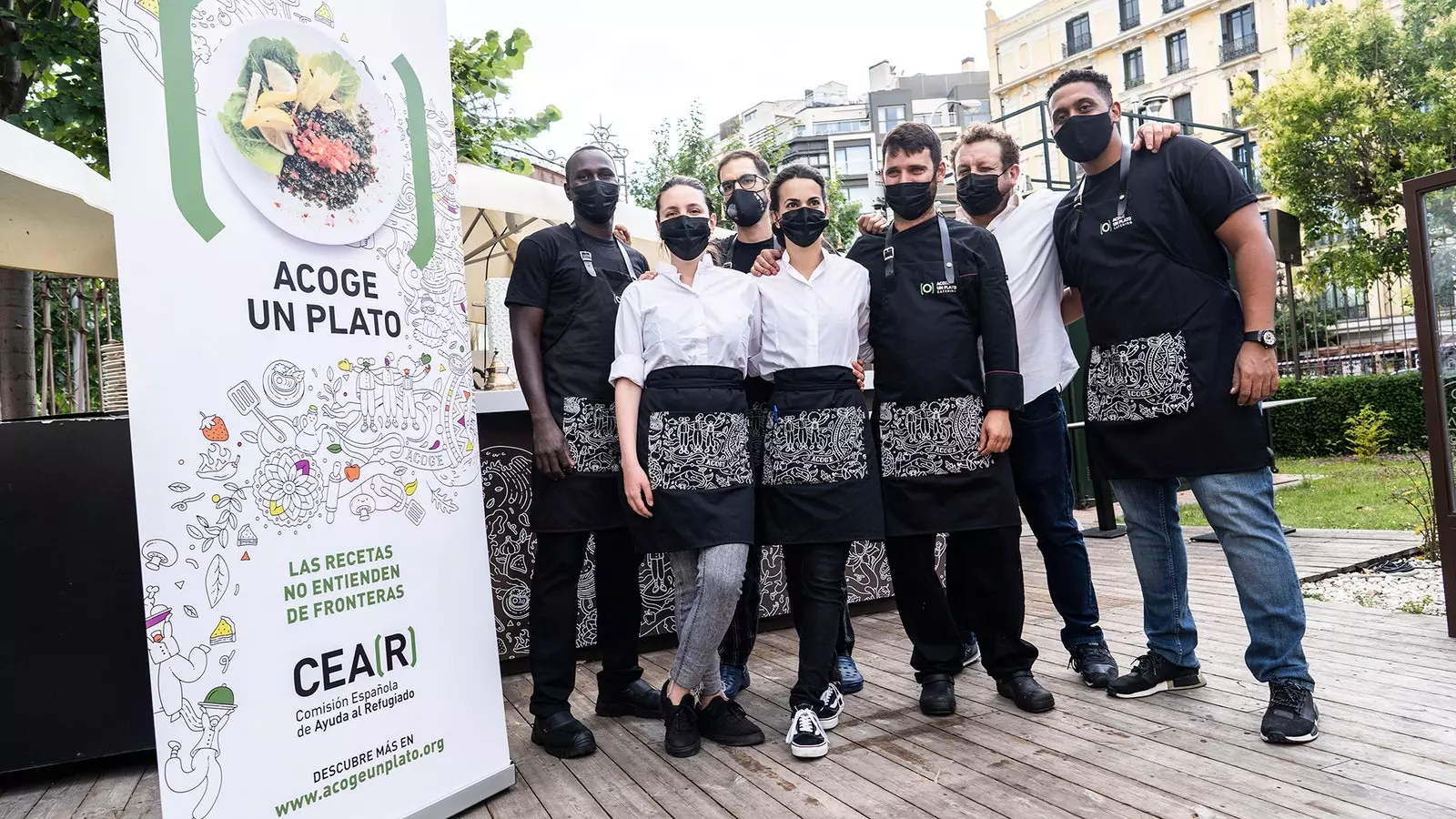
The Casa Árabe Host a Plate team
Address: Calle Alcalá, 62 See map
Schedule: From Sunday to Wednesday from 7:00 p.m. to 12:00 p.m. From Thursday to Saturday from 7:00 p.m. to 01:00 a.m.
